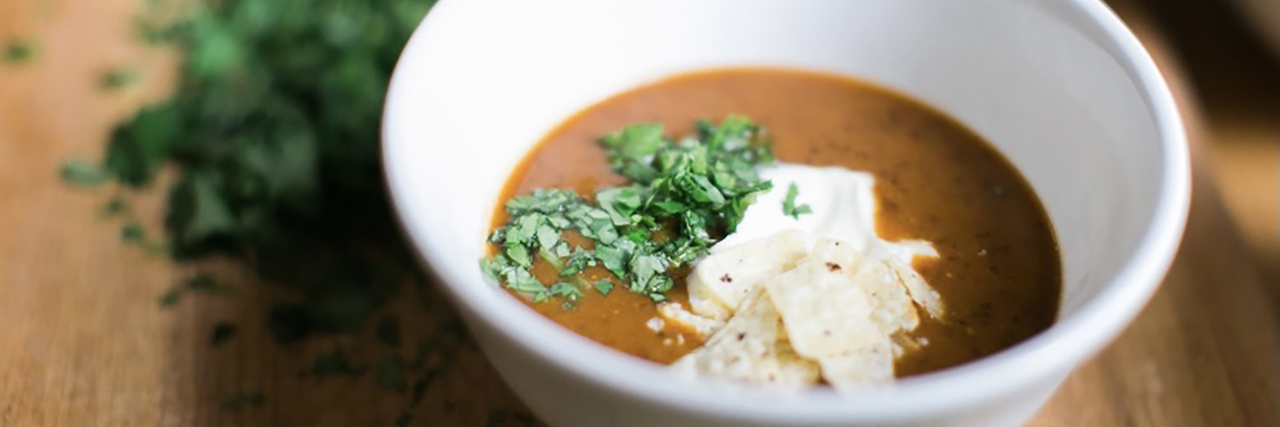Meeting Dietary Restrictions as a Chef Is Not Just Good Business, It's The Right Thing to Do
One of the commitments I made early on in my career as a chef was to accommodate dietary restrictions of any kind at my restaurant and bed and breakfast. I had first-hand experience with how challenging and demoralizing it could be to be affected by a food allergy when my mother-in-law was diagnosed with celiac disease in 1997. While her symptoms were finally being managed and she felt a thousand percent better, she lost something that many take for granted — the ability to safely enjoy a meal at a restaurant. Far too often, restaurants either didn’t have a gluten-free menu, or if they did, they were not well versed in the nuances and serious ramifications involving cross-contamination. That broke my heart and lit a fire within me to become a kind of safe haven for anyone that wants to enjoy fine dining without worrying about getting sick.
I extended my knowledge on accommodating dietary restrictions by becoming a master at reading food labels, researching substitutions for everything from thickeners in sauces to leaveners in baked goods, and committing to making everything in-house from scratch to order. I recognize that this is a luxury most chefs and restaurants don’t have, but because we were a small operation and I was the only person in the kitchen, I was confident that I could implement safety protocols to ensure that no cross-contamination occurred.
As the years went on, more and more dietary restrictions emerged. I started getting requests for every permutation of allergies and protocols from things like Paleo and Keto to Low Fodmap and AIP Protocol. Awareness of how chronic illness could be managed through diet skyrocketed, and with it a host of unique combinations of foods that people could and could not eat. I’m a naturally inquisitive person, so I took to researching each request completely, not just to understand what they are in terms of foods I could and could not use to create menus, but more importantly, what symptoms the protocols were designed to address.
Guests are often surprised when I ask details like “Are you gluten intolerant, have celiac disease, or a wheat allergy?” or “Are you lactose intolerant, casein intolerant, or do you have a dairy allergy?” And I always tell them that not only is it not a problem, I genuinely enjoy accommodating dietary restrictions. In fact, the more complex, the more I enjoy it. For me, it’s like a creative exercise, an opportunity to play with flavors and ingredients and combine them in unique ways. But what I love the most is the genuine joy in my guests’ faces when they are eating out for the first time in ages and not only do they not have to worry about getting sick, they can finally relax and fully experience the company of others. It’s an almost symbiotic intimate connection that we can make through the act of making and eating food, and it’s incredibly fulfilling.
This is why I get perturbed and dismayed with restaurants and chefs who refuse to compromise their vision to accommodate dietary restrictions. Many think that their creation will suffer if they leave anything out, or they have a sense that a lot of people are just making their allergies up. And don’t get me going on the level of antagonistic discourse I hear regarding requests for vegan or vegetarian options. Frankly, it’s self-centered and judgmental, and it dehumanizes others who whether by choice or necessity cannot or will not consume something. And it is the antithesis of what hospitality means.
Let me be clear, eating delicious food in community with others is a fundamental human right. I absolutely believe that it is not just one of the greatest pleasures in life, but that it fosters the kind of meaningful connection that enables humanity to thrive. Denying anyone that right because of what they can or cannot eat is cruel.
For anyone living with food allergies or dietary restrictions of any kind for any reason by choice or necessity, I have a simple message for you: never once feel shame or guilt or like you are an inconvenience for asking to get your needs met. You deserve the dignity of enjoying food safely, respectfully, and lovingly prepared for you. It’s my ultimate honor and privilege as a chef to feed your body and soul and to remind you that you are uniquely special and that you matter.

